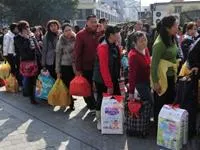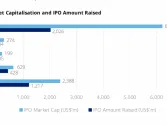
Inflation hits 34-month high of 5.2% yoy in May
Though a touch lower than expectations for 5.3%, it still sat above market expectations for 5.0%, says HSBC.
The sudden jump in China’ s May food price inflation is said to cause the mounting inflationary pressures.
Here’s more from HSBC:
| Facts Stripped of the impact of one-off government relief measures, the underlying pace of CPI inflation recorded an even bigger jump, to a 30-month high of 5.1% in May versus 4.4% in April. On a seasonally adjusted basis, the average monthly growth rate of CPI for the March to May period printed 0.6%, slightly slower than the average 0.7% for the preceding three month period (February to April). The equivalent sequential measure for underlying CPI rose by 0.6%, same as previously. Food price growth accelerated to 7% y-o-y from 6.3%, while food excluding meals away from home shot up at a pace of 10.2% versus 8.8% previously. Seasonally adjusted, we estimate that the two measures respectively picked up pace to 0.9% m-o-m (sa) from 0.6% a month earlier, and to 1.5% m-o-m (sa) from 0.9% a month ago. Housing rental costs in the meantime accelerated to 6.1% y-o-y from 5.1% previously. Based on our seasonally adjustment, housing rentals picked up 0.7% on the month (same pace as previously) Implications HK's food prices track those in the Mainland closely, typically with a lag of one to two quarters. Given the surprise jump in China's May food price inflation (to 11.7% y-o-y driven by pork and egg prices) and the impact of on-going floods in southern China on vegetable production, Hong Kong households will likely continue to see food prices rise for at least another 3-6 months. That said, our Chief China Economist Qu Hongbin still expects China's CPI to peak around 6% this month, given that Chinese agriculture officials expect vegetable price increases to ease off within weeks and that grain prices are not under threat with the country's enormous stock of state grain reserves (amounting to over a year's consumption). Consumer prices in Hong Kong tend to trail private property prices increases by about 11-12 months. Interestingly, this source of inflationary pressure pushes up not only the direct cost of private housing rental, but also the prices of other non-housing related items due to the boost that aggregate demand receives from higher property prices (via a wealth effect). Where property prices are concerned, even after the government's recent tightening of mortgage lending rules, private residential property price growth will unlikely soften meaningfully until next year, when new physical supplies are released into the market and/or monetary conditions tightened via a US rate hike. Fundamentally, food prices and housing costs are short-term cyclical drivers. Which means that all else being equal, once their impact have worked their way through the economic system, Hong Kong's inflation rate should fall back towards its long term trend (around 4 to 4.2% for the last decade). However, longer-term structural changes are taking place in the economy. Hong Kong's labour market has been operating at or above capacity now for well over a year. Employment has been rising and job market conditions improving almost non-stop since the end of 2009. All of which means that the economy's ability to step up potential output ahead of actual demand has started to worsen. Coupled with the seemingly un-stoppable momentum behind domestic demand (monthly retail sales have risen for twenty months running and are sitting at a record high, seasonally adjusted), and the fact that the output gap closed 3 quarters ago, all signs suggest that Hong Kong's demand growth has caught up with its production potential. In other words, inflation in Hong Kong is now both a supply and a demand driven phenomenon. For similar reasons, we remain vigilant on the need for inflation to be tackled throughout this year in Asia (See Asian Economics Comment: No need to owrry about inflation then? - 20 June 2011). Even once food and property price inflationary drivers ease off, and even once excessively monetary conditions have been normalized (via the first US Fed rate hike which we've penciled in for late 2012), both headline and core inflation readings will likely stay above our previous long-run trend benchmark of 4.2%. Finally, we acknowledge that the recent let-up in global energy prices (10% down from their April peak) is a welcome relief, but any respite is limited given that transport makes up for only 8% of Hong Kong's composite CPI basket. Bottom line: Inflation continues to be spearheaded by food and private housing rental prices in Hong Kong. In addition, above-trend growth, wage inflation, global commodity prices and "easy money" conditions mean that inflation in Hong Kong is now as much supply driven as it is demand driven. We continue to expect inflationary pressures to build through most of 2011, stoked by a wide-ranging mix of drivers. |



















 Advertise
Advertise







